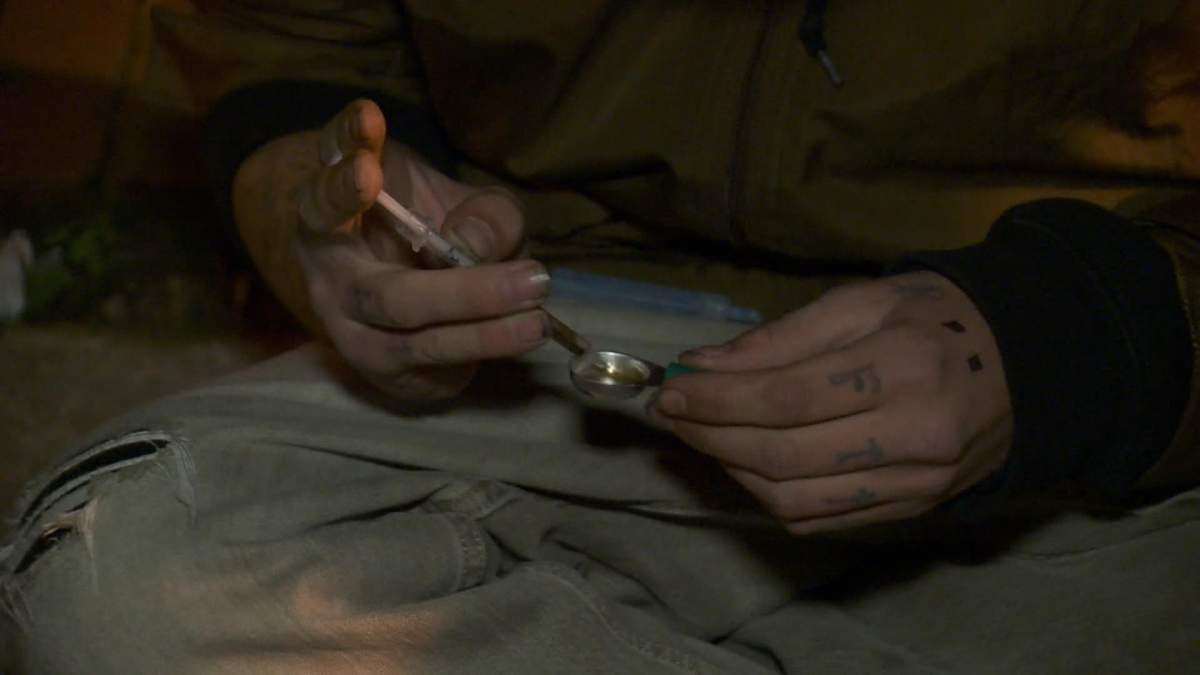Some communities in B.C.’s Southern Interior are mulling bylaws that would counteract part of the province’s new drug decriminalization plan.

Announced earlier this year, the three-year pilot project allows people to carry up to 2.5 grams of street drugs for personal use and not be arrested or charged.
However, some city councils are saying there should be exemptions where illicit drugs can be used. For example, Kelowna’s mayor, Tom Dyas, is proposing a bylaw that lists playgrounds and areas around parks as no-go scenarios for drug users.
In turn, the Interior Health Authority says those communities should wait for six months before implementing any new bylaws, saying they need to see how this plan works out in the short term.
“Interior Health medical health officers (MHOs) have engaged with several municipalities on the topic of decriminalization,” Interior Health said in an email.
“For example, an MHO made a formal presentation to the District of Sicamous, and other MHOs are having discussions with local communities like Lake Country, Penticton, Kelowna, and Merritt.
“The RCMP in the Interior Health region and the Nelson City Police Department have also been engaged in discussions.”

Interior Health added that “we are open to talking to any municipalities who are interested in more information on decriminalization as part of our commitment to ongoing discussions.”

Get daily National news
In its letter to local municipalities on April 14, IHA said while it does not promote substance use in public spaces, “punitive approaches would be perpetuating the harms we are trying to reduce with this exemption. These harms also include stigma and shame that force people to conceal their substance use and use alone, increasing their risk of dying from substance poisoning.
Not all are on board, though, with Interior Health’s suggestions.
In Kamloops, where a bylaw is being considered, city councillor Bill Sarai told the media this week that IHA has “never been at the table, they’ve never brought solutions. Everything they promote is enabling usage of drugs and that’s got to stop.”

In the South Okanagan, the Penticton and Wine Country Chamber of Commerce issued a press release that went against Interior Health’s suggestion.
“While we appreciate the reasons behind Interior Health’s request to collect data on public narcotic consumption, decriminalization by itself is not the answer,” said chamber president Nicole Clark.
“Everyone refers to the Portugal model and how decriminalization is necessary, but what always seems to be left out is everything else that makes that model so effective.”

Clark says Portugal has wraparound services, none of which are available in Penticton.
Further, chamber executive Michael Magnusson said “the contents of the proposed bylaw put forward to mayor and council is not punitive, but rather helps ensure that public areas, especially those visited by families, seniors, tourists, and areas around storefronts are kept as safe and accessible as possible while those with drug dependencies are still able to utilize designated consumption sites.”
Further, the press release said, “one could argue that Penticton, along with the rest of the province, has waited long enough already, and because things continue to deteriorate for both those suffering from drug dependency as well as communities at large, local governments must take action to protect their residents and economies until such time as the province and its various health authorities implement meaningful measures to deal with this epidemic.”





Comments